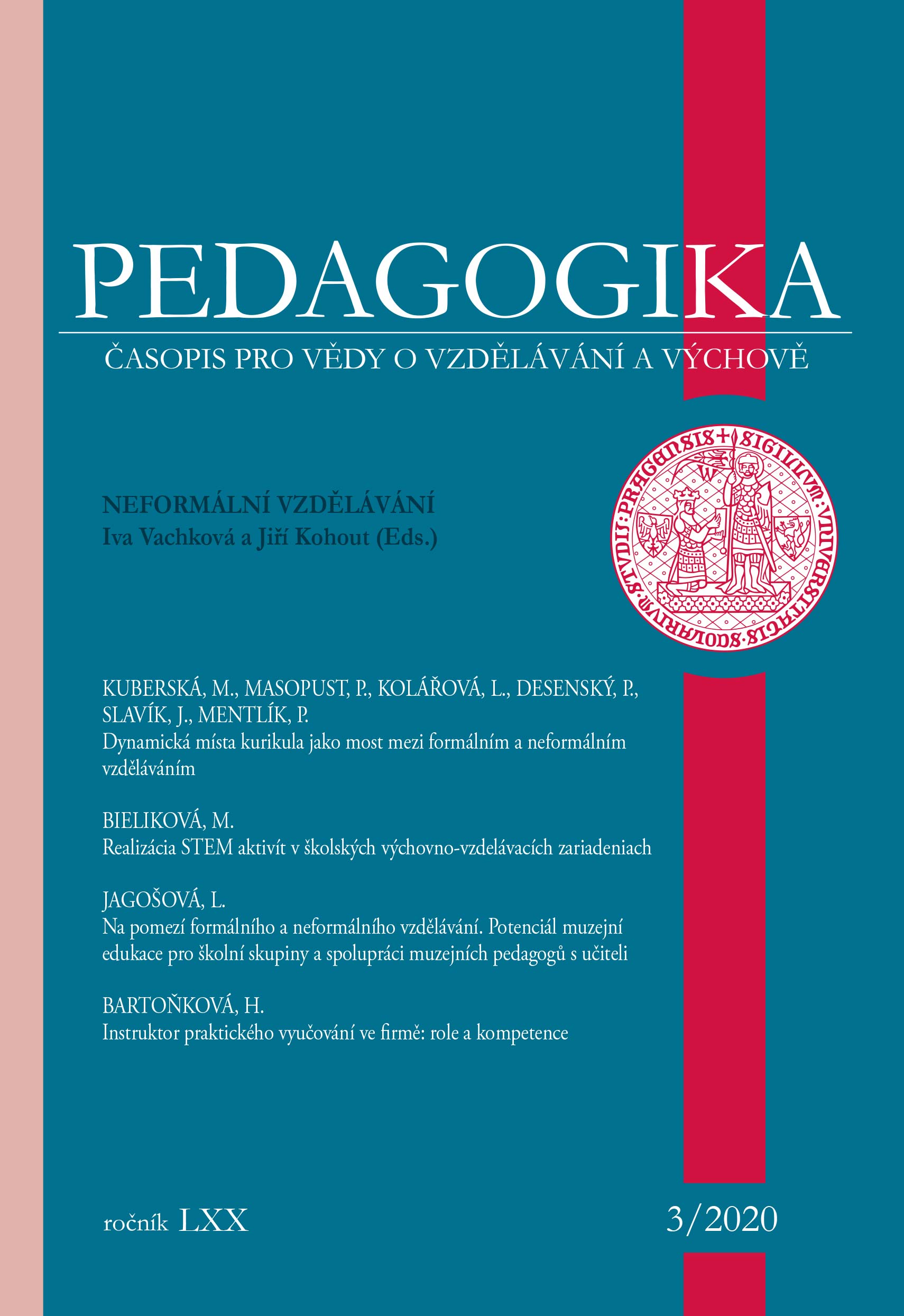Possible Benefi ts of Non-Formal Education Based on a Value System
DOI:
https://doi.org/10.14712/23362189.2020.1674Keywords:
non-formal education and upbringing, comprehensive value system, effective feedback, linking formal and non-formal educationAbstract
The paper focuses on the unique opportunities offered by the field of non-formal education (and upbringing), especially in the form offered by traditional associations for children and young people. It is based on a generally accepted definition of non-formal education, which makes it possible to point out the decisive principles: it is not only about education, but also about education which is based on values and takes place on a voluntary basis. In the next and most extensive section, we will discuss the complexity of education and training, an extremely important relationship level with strong features of partnership and longevity, which allows for the true development of competencies – including those that are key, education for freedom and responsibility, effective feedback, and the role of role models. In the conclusion, in connection with the Connecting Formal and Non-formal Education project, including an article of interest, some important results and the main obstacles to the possibility of using the benefits of non-formal education in schooling will be presented.
Keywords: non-formal education and upbringing, comprehensive value system, effective feedback, linking formal and non-formal education
References
České děti venku. (2016). Závěrečná zpráva z výzkumu. Nadace Proměny Karla Komárka. Dostupné z www.vyzkum-mladez.cz
Markovičová, A., & Polcr, P. (2008). Strategie osobnostního rozvoje. Metodická příručka k učebnici. 1. díl. Cyrilometodějské gymnázium v Prostějově. Dostupné z www.sor-cmg.cz
Matějček. Z. (2015). Co, kdy a jak ve výchově dětí. Praha: Portál.



